The Washington Report
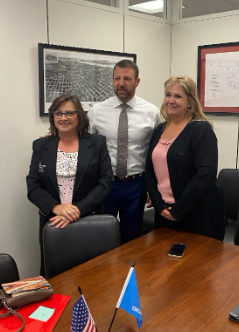 Special Diabetes Program for Indians Receives First Funding Increase in Decades
Special Diabetes Program for Indians Receives First Funding Increase in Decades
The Special Diabetes Program for Indians (SDPI), one of the most successful public health programs in the United States, has been reauthorized by Congress with its first funding increase in 20 years. The SDPI was reauthorized in the minibus package (P.L. 118-42) passed by Congress on March 8, 2024, and the program was reauthorized through December 31, 2024. Congress reauthorized the program at a new funding level, putting SDPI at $160 million annually. SPDI had previously been funded at $150 million annually.
 CHAP TAG Submits Formal Recommendations to IHS
CHAP TAG Submits Formal Recommendations to IHS
On March 26 & 27, 2024, the Community Health Aide Program Tribal Advisory Group (CHAP TAG) met to discuss updates on the implementation of the national CHAP to the contiguous 48 states. The CHAP TAG’s role is to provide input and feedback to the Indian Health Service (IHS) on the program’s design and implementation to serve Tribal communities.
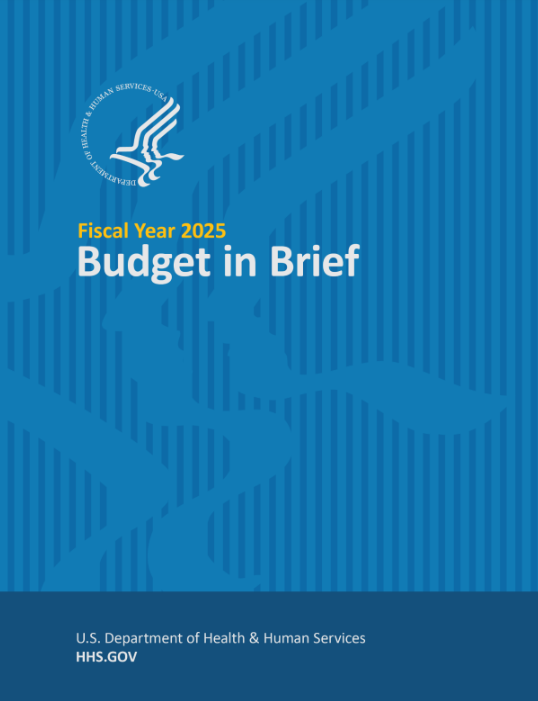 Biden Administration Releases Its Fiscal Year 2025 Budget
Biden Administration Releases Its Fiscal Year 2025 Budget
The final budget proposal of President Biden’s first term has arrived with the release of the FY 2025 President’s Proposed Budget on March 11, 2024. The Budget in Brief, the U.S. Department of Health and Human Services’ (HHS) FY 2025 budget narrative, lays out the Administration’s further priorities for HHS and its agencies and operating divisions. At a high level, the Biden Administration continues to focus on the impacts of substance use disorders, opioids, and mental health on the U.S. population coming out of the COVID-19 pandemic. As part of its FY 2025 request, the Administration has also requested that the expanded tax credits for ACA health benefits coverage be made permanent. This coverage supports more families to receive coverage under the ACA, including in states that have not expanded Medicaid yet. Finally, as part of the President’s efforts to focus on health equity, the Administration focuses on improving maternal health outcomes, continuing its appropriations request to move the IHS to mandatory appropriations, and improving access to health care in rural America—including Indian Country.
United States Supreme Court Skeptical of Federal Government’s Argument in Contract Support Cost Cases
On March 25, 2024, the Supreme Court of the United States (SCOTUS) heard oral arguments in Becerra v. San Carlos Apache Tribe and Becerra v. Northern Arapaho Tribe. The two cases were previously consolidated and were heard together at the oral argument (the consolidated case is Becerra v. San Carlos Apache Tribe 23-250). The issue of the case is whether the Indian Health Service (IHS) must pay contract support costs (CSC) not only to support IHS-funded activities but also to support the Tribe’s expenditure of income collected from third parties. Observers of the argument were generally optimistic that the Tribes’ case was well received by the Justices during the argument. The Court is expected to issue its decision in the case by June of this year. Continue below for an analysis of the proceedings.
Department of Veterans Affairs Releases Revised Draft Reimbursement Agreement
The Department of Veterans Affairs (VA) recently released a revised draft Reimbursement Agreement between the VA and Tribal Health Programs (THPs) in the lower 48. The Lower 48 Reimbursement Agreement (Agreement) is critical, as it will establish the basic underlying terms for reimbursement from the VA to the THPs for care provided to American Indian and Alaska Native (AI/AN) Veterans at Tribally operated facilities. This most recent version reflects the collaborative efforts between the VA, the Indian Health Service (IHS), and Tribes to ensure that the federal government honors its trust responsibility and that all eligible AI/AN veterans receive the care owed and promised to them.
Department of Veterans Affairs Seeking Comment on Proposed Updates to Departmental Consultation Policy
On January 26, 2024, The US Department of Veterans Affairs (VA) announced that it had updated its Tribal Consultation Policy after a years-long information gathering and revision process. The VA Tribal Consultation Policy, first implemented in 2011, guides the VA’s approach to engaging with Tribes during Tribal consultation. Tribal consultation is a formal, two-way, government-to-government dialogue between official representatives of Tribes and Federal agencies to discuss federal proposals, policies, and programs that have Tribal implications. Consultation allows for the exchange of information, respectful dialogue, consensus building, mutual understanding, and informed policy-making and programmatic development.
Tribal Leaders Participate in Inaugural Listening Session with Federal Agency
On March 19, 2024, the Advanced Research Projects Agency for Health (ARPA-H), introduced itself to Tribal leaders at its first listening session. ARPA-H, an agency within the Department of Health & Human Services (HHS), was founded in March of 2022 and funds research for health breakthroughs to provide solutions from the molecular to the societal level, according to the Dear Tribal Leader Letter. The listening session was geared toward giving Tribal leaders an overview of the agency’s mission, objectives, and participation opportunities.
SAMHSA PUBLISHES FINAL RULE THAT EXPANDS ACCESS TO TREATMENT FOR OPIOID USE DISORDER
On February 2, 2024, the Substance Abuse and Mental Health Services Administration (SAMHSA), an agency of the Department of Health and Human Services (HHS), adopted a final rule that updates regulations related to Opioid Treatment Program (OTP) accreditation, certification, and standards for the treatment of Opioid Use Disorder (OUD) with Medications for Opioid Use Disorder (MOUD) in OTPs.
New Indian Country Legislation for February 2024
Truth and Healing Commission on Indian Boarding School Policies Act of 2024
Representatives Sharice Davids (D-KS-03), a member of the Ho-Chunk Nation in Wisconsin, and Tom Cole (R-OK-04), a member of the Chickasaw Nation of Oklahoma, reintroduced the Truth and Healing Commission on Indian Boarding School Policies Act of 2024 (HR 7227) to establish a Truth and Healing Commission to investigate, document, and report on the histories of Indian boarding schools, Indian boarding school policies, and long-term impacts on Native Communities.
 NIHB Coordinates Visits on Capitol Hill in Conjunction with National Congress of American Indians Executive Council Winter Session
NIHB Coordinates Visits on Capitol Hill in Conjunction with National Congress of American Indians Executive Council Winter Session
The National Congress of American Indians (NCAI) held its Executive Council Winter Session (ECWS) in Washington, DC on the week of February 12, 2024. As part of the activities organized for the ECWS, NCAI, NIHB, and other Tribal partners organized hill visits to support Tribal Leaders to meet with Congressional Leaders on issues impacting Indian Country. The NIHB, NCAI, and the National Council on Urban Indian Health (NCUIH) lead two groups of Tribal Leaders to speak on critical health priorities to advance during the remaining 118th Congress.
 SCIA Legislative Hearing on February 8, 2024
SCIA Legislative Hearing on February 8, 2024
The Senate Committee on Indian Affairs (SCIA) held a legislative hearing on February 8th to receive testimony on various pieces of legislation, including the Indian Health Service (IHS) Workforce Parity Act of 2023 (S. 3022) and the Tribal Access to Clean Water Act of 2023 (S. 2385). The witnesses before the committee were HHS Assistant Sec. for Legislation Melanie Anne Egorin; DOI Indian Affairs Deputy Assistant Secretary Kathryn Isom-Clause; Chairman Manuel Heart, Ute Mountain Ute Tribe; Chief Douglas Lankford, Miami Tribe of Oklahoma; President Robert Larsen, Lower Sioux Indian Community; Chairwoman Victoria Kitcheyan, Winnebago Tribe of Nebraska; Executive Director Angie Wilson, Reno Sparks Indian Colony Tribal Health Center.
Elimination of the Tribal Non-Federal Share for Tribal Support Program at the ACF
On February 12, 2024, the Administration for Children and Families (ACF) published its final rule that eliminates the non-federal share of program expenditures requirement for Tribal support programs, beginning October 1, 2024. Tribal comments on the requirement have raised concerns over the share’s impact on the ability of Tribal child support programs to grow due to the fiscal decisions it forces upon these programs to choose between committing funds to meeting this requirement or using those funds to serve Tribal families in need of support.
Tribal Leaders Discuss Who Should be Included in the Definition of “Indian Tribe”
Between January 9th and January 18th, the Indian Health Service (IHS) hosted four virtual Tribal consultation sessions to solicit Tribal input on how to define “Indian Tribe” in the updated IHS Consultation Policy (IHS CP) (read the current draft IHS CP here). The Dear Tribal Leader Letter, dated November 27, 2023, posed the following question:
“What definition of Indian Tribe should be included in the updated Consultation Policy: the List Act Definition (25 U.S.C. § 5130); or the ISDEAA Definition (25 U.S.C. § 5304(e))?”
Administration Seeks to Invest $250 Million in Indian Country To Combat the Opioid Crisis, Part of Broader Federal Effort to Address the Crisis
On February 1, 2024, the Indian Health Service (IHS) hosted a virtual consultation to solicit Tribal input on the potential implementation of $250 million included in the Biden Administration’s recent supplemental request. The funds would address fentanyl and opioid abuse, prevention, treatment, recovery services, and harm reduction interventions in Tribal communities, according to the Dear Tribal Leader Letter dated January 12, 2024.
ACL Held a Tribal Consultation on its Draft Tribal Consultation Policy
On January 24, the Administration for Community Living (ACL) held a Tribal Consultation on its Draft Tribal Consultation Policy during its Title VI Cluster Training in Washington, DC.
BIPARTISAN INFRASTRUCTRE CONSULTATION
On December 18, 2023, a Tribal Consultation was held between Tribal leaders and the Indian Health Service (IHS). IHS initiated the consultation to gather input to develop a spend plan for the third year of the Bipartisan Infrastructure Law (BIL).
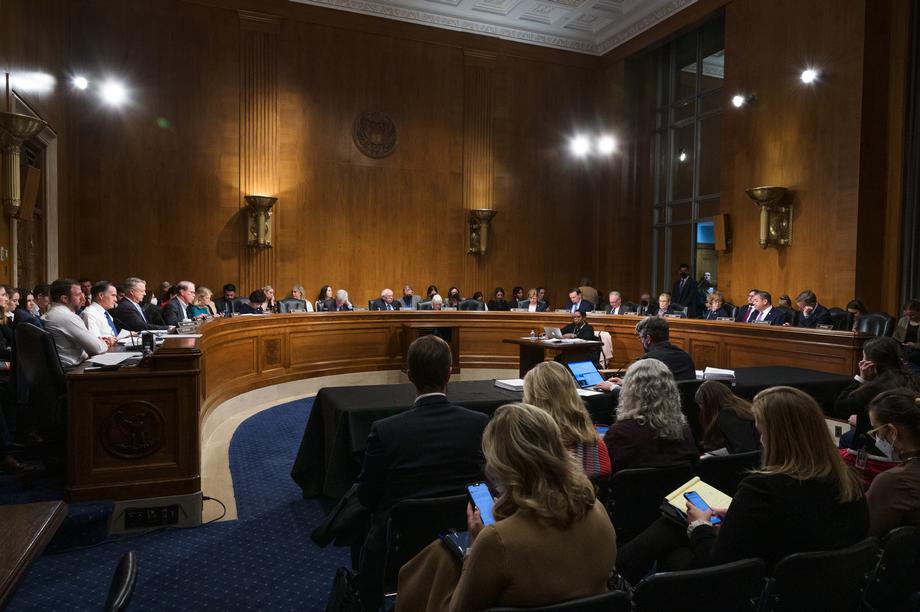 OPIOID LEGISLATION PASSES THROUGH SENATE HELP COMMITTEE
OPIOID LEGISLATION PASSES THROUGH SENATE HELP COMMITTEE
On December 12, 2023, the Senate Committee on Health, Education, Labor & Pensions (HELP) held a markup on the SUPPORT Act and the Modernizing Opioid Treatment Access Act. The SUPPORT Act reauthorizes numerous laws aimed at implementing programs and services for those struggling with and overcoming substance use, while the Modernizing Opioid Treatment Access Act allows pharmacies to dispense methadone.
Listening Session on National Strategy for Suicide Prevention
On January 4, 2024, the Substance Abuse and Mental Health Services Administration (SAMHSA) hosted a Listening Session to update Tribal leaders and to receive input on the National Strategy for Suicide Prevention (NSSP). Specifically, representatives from SAMHSA were interested in gaining insight from Tribes to help identify critical issues related to suicide prevention in Tribal communities. The listening session focused on two questions:
- After seeing the new Strategic Directions and Goals of the NSSP, what are some critical issues related to Tribal suicide prevention you would like to see represented or discussed in the strategy?
- What are the ways we can engage Tribal communities in the implementation of the strategy in the months and years after the strategy’s release?
 November STAC Covers Funding Updates and Tribal Community Outreach
November STAC Covers Funding Updates and Tribal Community Outreach
The Department of Health and Human Services (HHS) Secretary’s Tribal Advisory Committee (STAC) took place on November 28 and 29, in Washington, DC. Leaders across HHS agencies, including Indian Health Service (IHS) Director Roselyn Tso, Centers for Disease Control and Prevention Director (CDC) Mandy Cohen, and National Institutes of Health (NIH) Director Monica Bertagnolli, among others, presented updates and engaged in discussion with Tribal leaders on current Tribal health issues and priorities. Among these discussions, IHS unobligated balances, the Presidential supplemental funding request, and outreach efforts in Indian Country emerged as stand-out topics.
IHS Health Information Technology Summit Addresses Modernization Initiative’s Funding, Staffing, and Rollout
On December 13, 2023, the Indian Health Service (IHS) hosted the Health Information Technology (HIT) Modernization Summit to provide updates and discuss HIT issues with Tribes. The HIT Modernization Summit followed up on the November 8, 2023 IHS press release, which announced the selection of General Dynamics Information Technology, Inc. to build a new IHS enterprise Electronic Health Record system utilizing Oracle Cerner technology to serve users of the Indian healthcare system. This new EHR will replace the current system known as RPMS, the Resource and Patient Management System.
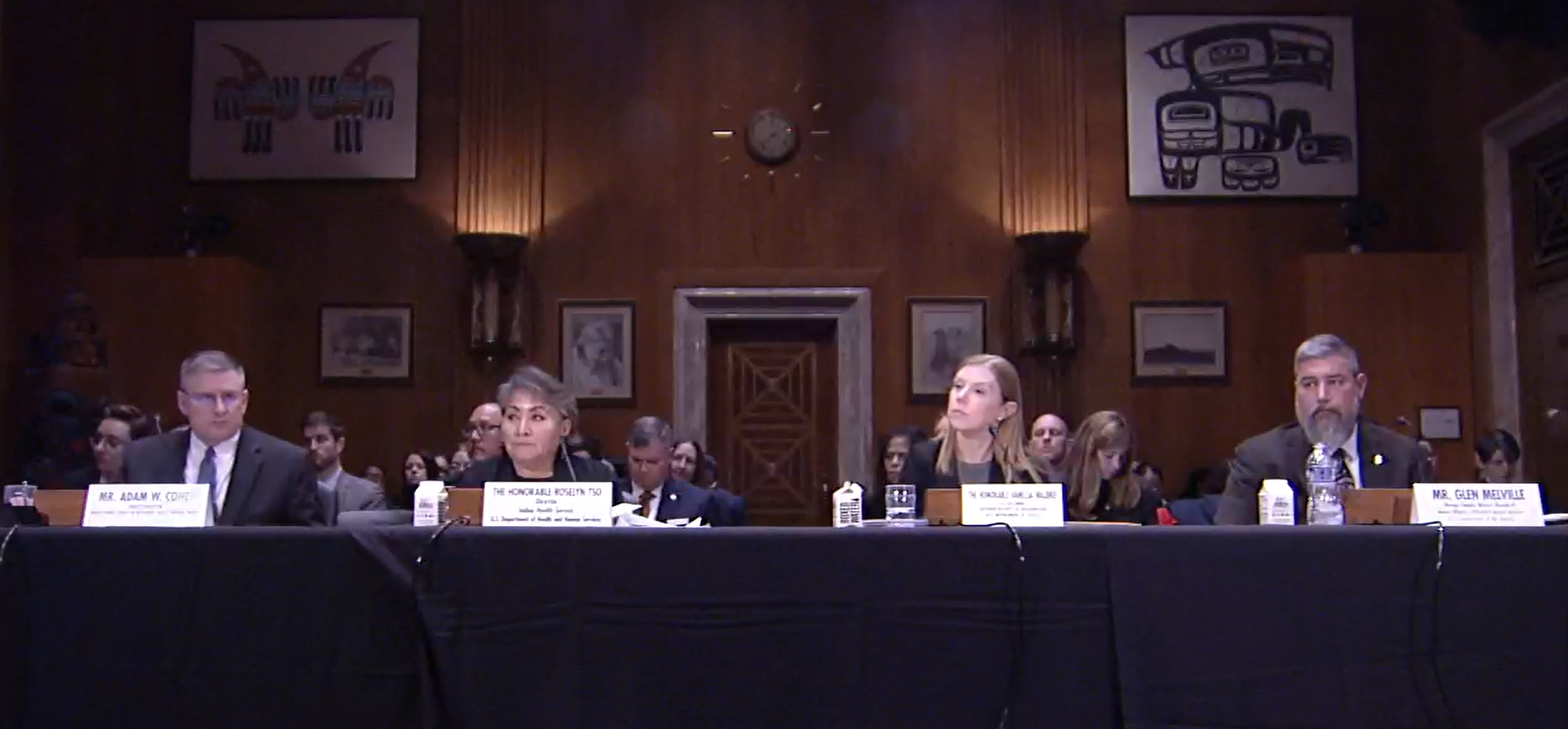 SCIA Holds Second Hearing on Fentanyl Crisis
SCIA Holds Second Hearing on Fentanyl Crisis
On December 7, 2023, the Senate Committee on Indian Affairs (SCIA) hosted an oversight hearing titled, “Fentanyl in Native Communities: Federal Perspectives on Addressing the Growing Crisis.” SCIA heard testimony from federal partners within the White House, the Indian Health Service (IHS), the Department of Justice (DOJ), and the Bureau of Indian Affairs (BIA). The hearing was a follow up to another hearing SCIA hosted on November 8th where the committee heard testimony from Tribal leaders.
Tribal Leaders Call for Extended Grant Cycles, Equitable Grant Opportunities and More During Tribal Opioid Response Consultation
On November 9, 2023, the Substance Abuse and Mental Health Services Administration (SAMHSA) hosted a Consultation on the Tribal Opioid Response (TOR) grant funding methodology. Since the program’s inception in fiscal year (FY) 2018, SAMHSA has utilized user population estimates from the Indian Health Service (IHS) as the basis for determining grant award amounts for the TOR grant program. During the Consultation, SAMSHA was specifically seeking feedback and recommendations for the funding methodology of the grant program for FY 2024.
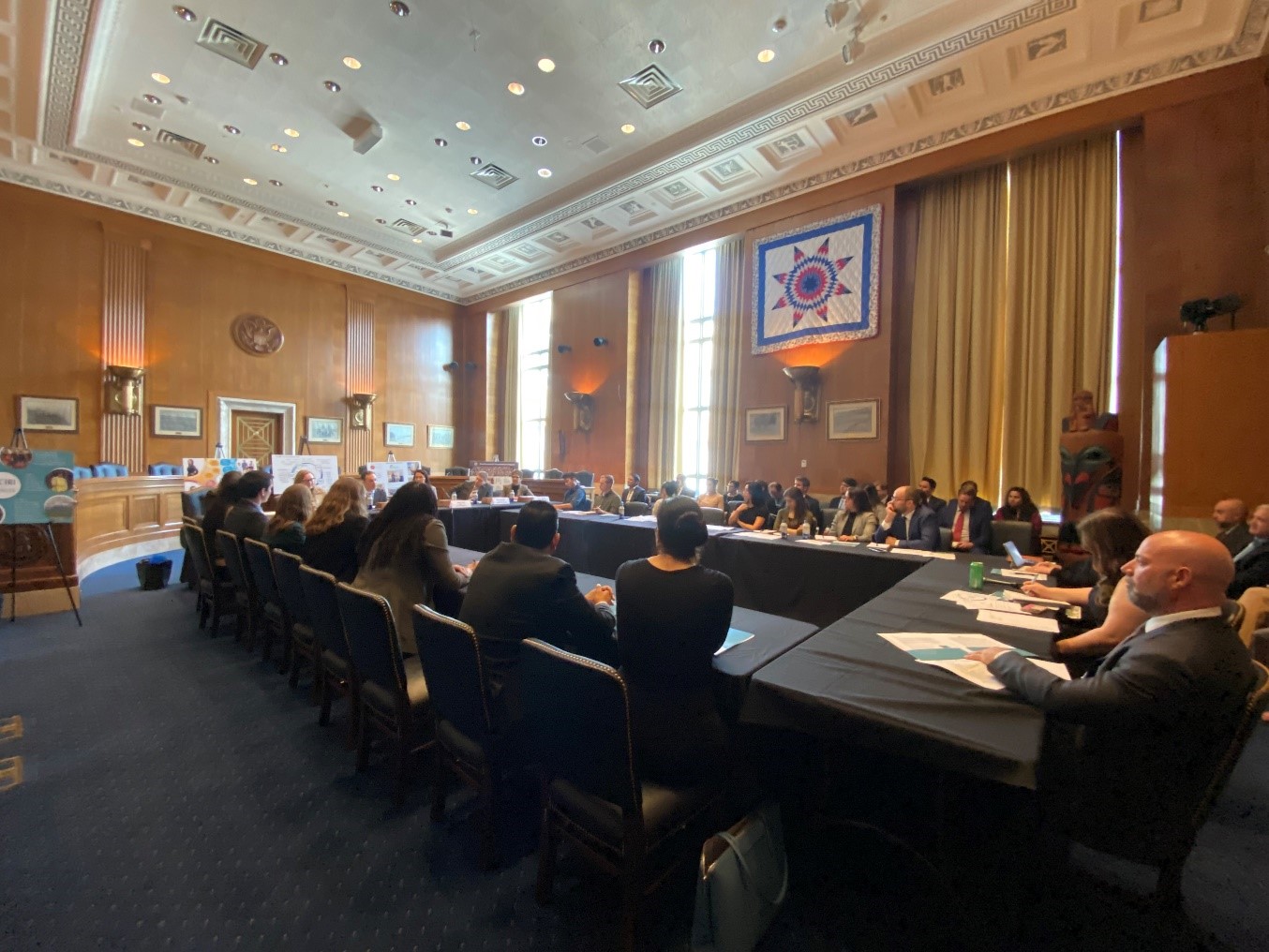 How Healthcare is Delivered to Over 70,000 AI/ANs in the Cook Inlet Region of Southern Alaska
How Healthcare is Delivered to Over 70,000 AI/ANs in the Cook Inlet Region of Southern Alaska
The Senate Committee on Indian Affairs hosted a briefing that was led by the Cook Inlet Region, Inc. (CIRI) on November 1, 2023. The objective of the briefing was to share information about how CIRI and its partner organizations collaborate to deliver healthcare to the over 70,000 American Indians and Alaska Natives (AI/ANs) in the Cook Inlet Region. CIRI was created, along with 11 other AN regional corporations, under the Alaska Native Claims Settlement Act (ANCSA). CIRI delegates its Tribal authority to three Designated Tribal Organizations (DTOs) that serve those who live in the Cook Inlet Region, regardless of their affiliation with CIRI. These DTOs include the Cook Inlet Housing Authority (CIHA), Southcentral Foundation (SCF), and Cook Inlet Tribal Council (CITC).
North Dakota and South Dakota PRC Study Consultation
On October 18, The Indian Health Service (IHS) Office of Resource Access and Partnerships (ORAP) hosted an online Tribal consultation session to solicit feedback on a study investigating the feasibility of a Purchased/Referred Care Delivery Area (PRCDA) in North Dakota and South Dakota. The Purchased/Referred Care program can pay for medical or dental services delivered outside of IHS and Tribal health facilities if a Tribal member can meet requirements relating to residency, notification, medical priority, and alternate resources. The consultation is IHS’s response to provisions in the Indian Health Care Improvement Act (IHCIA), 25 U.S.C. § 1678a(a), which provides for the designation of the states of North Dakota and South Dakota as “a contract health service delivery area.”
HHS Finalizes Tribal Consultation Policy After 3 Years of Collaboration
Last month, the U.S. Department of Health and Human Services (HHS) finalized and released its Tribal Consultation Policy. The finalization of the consultation policy is the culmination of nearly three years of collaboration between Tribal leaders and the Federal government. The revision process began in January 2021 when President Biden issued a Presidential Memorandum on Tribal Consultation, which instructed all federal agencies to engage in meaningful and robust consultation with Tribal officials when formulating policy and making programmatic changes. In response to the memo, HHS began the process of updating its consultation policy. HHS worked with members of the HHS Secretary’s Tribal Advisory Committee (STAC) to incorporate Tribal recommendations into the updated HHS Tribal Consultation Policy.
Healthy People 2030 Listening Session Aims to Address Tribal Health Concerns
The Department of Health and Human Services (HHS) hosted a listening session on October 25th to discuss the development of a Notice of Funding Opportunity entitled, "Healthy People 2030 Leading Health Indicators Initiative." The Initiative is intended to identify innovative adaptations of evidence-informed practices that improve health outcomes among racial, ethnic, Tribal, and other communities. This listening session intended to solicit feedback from Tribal leaders on the development of their Notice of Funding Opportunity. HHS approached its objective by reviewing three questions with Tribal leaders:
 NIHB Government Relations Presents Indian Health 101 in Senate Committee on Indian Affairs Hearing Room
NIHB Government Relations Presents Indian Health 101 in Senate Committee on Indian Affairs Hearing Room
On October 26, the NIHB Government Relations Team presented Indian Health 101: Fulfilling a Promise in the Senate Committee on Indian Affairs Hearing Room. The educational presentation was attended by Congressional and NIHB staff. Key topics covered during the presentation included the legal basis of the Indian health system, Indian health today, and health issues for the 118th Congress.
 MMPC and TTAG Meetings Spotlight Disenrollment Data Sharing and Proposed Nursing Staff Requirements
MMPC and TTAG Meetings Spotlight Disenrollment Data Sharing and Proposed Nursing Staff Requirements
From October 17 to October 19, the Centers for Medicare and Medicaid Services (CMS) Tribal Technical Advisory Group (TTAG) and the Medicare, Medicaid, and Health Care Reform Policy Committee (MMPC) held their face-to-face meetings in Crystal City, Virginia. These meetings gathered Tribal leaders, federal representatives, and Tribal health policy advocates engage on current priorities and issues. At the conclusion of both meetings, it is clear that significant work remains surrounding Medicaid unwinding disenrollments, the proposed rule on nursing staff requirements, and the new AHEAD Model Cooperative Agreement.
Senator Tina Smith Introduces Bill to Improve Education About Native Peoples and Their Histories
On October 4, Senator Tina Smith (D-MN) introduced S.3019, the Native Histories and Cultures Education Act of 2023. The bill intends to provide for the development of “accurate, relevant, and accessible” educational resources about Native Americans. Senator Smith described her motivations for introducing the bill saying, “It is unacceptable that so many Americans are under- and misinformed about Native peoples and their history.” The press release from Senator Smith’s Office further explains that focusing on primary and secondary education systems is essential to address the spread of inaccurate information about Native peoples.
Bipartisan Legislation to Permit Half-Time Health Care Providers to Receive Loan Repayments Through IHS
On October 4th, Senators Cortez Masto (D-Nev.) and Mullin (R-Okla.) introduced the Indian Health Services (IHS) Workforce Parity Act of 2023 with the goal of making it easier for IHS to retain current providers while also recruiting new doctors. The proposed bipartisan legislation would allow part-time health care providers to access IHS scholarships and loan repayment programs as they serve the more than 2 million American Indian and Alaska Natives (AI/ANs). “I am confident this legislation will address the current difficulty IHS is facing in recruiting and retaining healthcare professionals,” said Senator Mullin in a press release.
 Senate Committee on Indian Affairs Holds Hearing on Access to Water in Native Communities
Senate Committee on Indian Affairs Holds Hearing on Access to Water in Native Communities
On September 27th, The Senate Indian Affairs Committee held a hearing entitled “Water as a Trust Resource: Examining Access in Native Communities.”. The witnesses were Bryan Newland, Assistant Interior Secretary for Indian Affairs; Benjamin Smith, Deputy Director of IHS; Crystalyne Curley, Navajo Nation Council Speaker; Valerie Nurr’araaluk Davidson, Alaska Native Tribal Health Consortium (ANTHC) President; Kali Watson, Department of Hawaiian Homelands Chairman; and Heather Tanana, Universal Access to Clean Water for Tribal Communities project Initiative Lead.
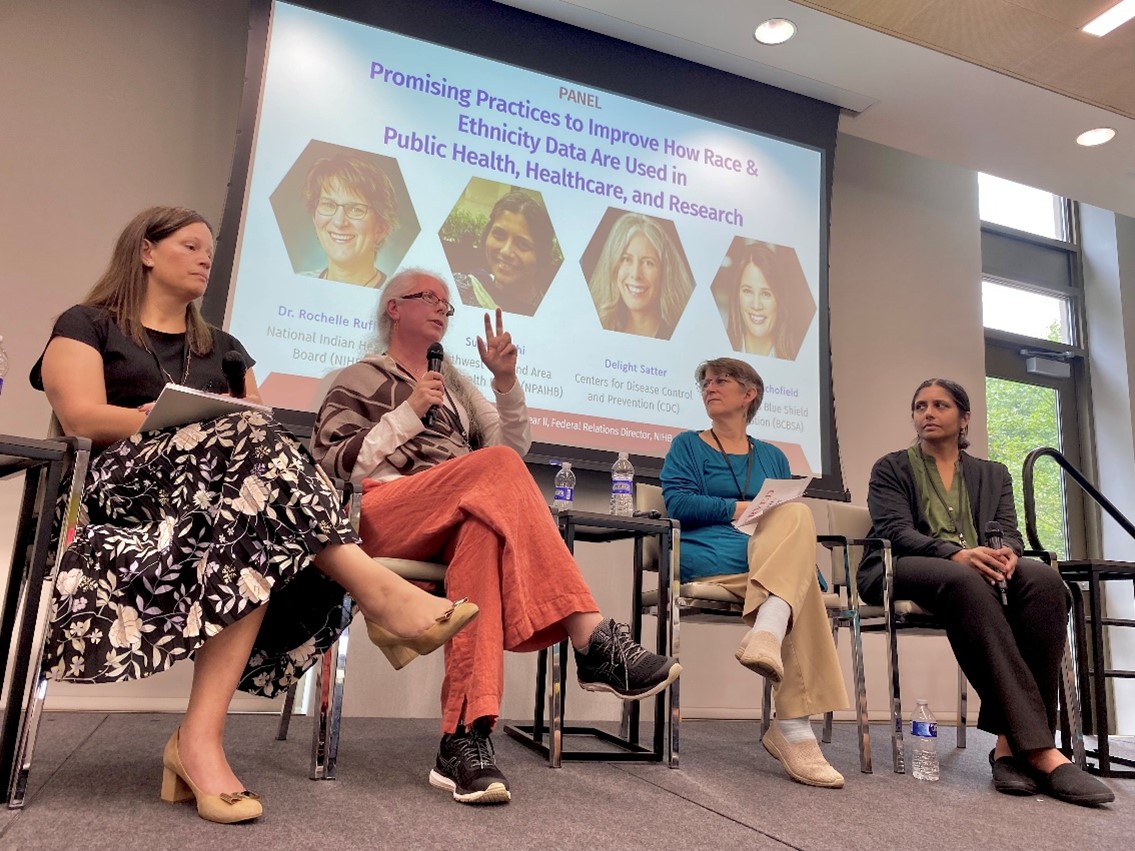 NIHB Hosts Tribal Health Equity Data Symposium
NIHB Hosts Tribal Health Equity Data Symposium
On September 25 and 26, the National Indian Health Board (NIHB) hosted the Tribal Health Equity Data Symposium in Washington, DC. Over the two-day event, speakers, panels, and facilitated sessions covered a range of topics, including measuring health equity with an Indigenous lens, culturally relevant data collection methods, promising practices in improving the collection of race and ethnicity data, and challenges and opportunities in Tribal access to data held by federal and state agencies. These discussions concluded that future directions for health equity work should honor the importance of good stewardship of American Indian/Alaska Native (AI/AN) data, Tribal access to datasets held by federal and state agencies, and furthering Indigenous perspectives in health equity and health research.
CMS Takes Action to Make Care for Older Adults & People with Disabilities More Affordable and More Accessible
Last week, the Centers for Medicare and Medicaid Services (CMS) issued its final rule updating Medicaid regulations that aim to make it easier for low-income older adults and people with disabilities to get help with their Medicare costs. The new final rule on “Streamlining Medicare Savings Program Eligibility Determination and Enrollment” simplifies the burdensome processes for applying to, and verifying income and assets for, the Medicare Savings Programs (MSPs) across states.
 Centers for Disease Control and Prevention (CDC) Tribal Advisory Committee Meets and Visits Local Tribal Health Center
Centers for Disease Control and Prevention (CDC) Tribal Advisory Committee Meets and Visits Local Tribal Health Center
Centers for Disease Control and Prevention (CDC) Tribal Advisory Committee Meets and Visits Local Tribal Health Center
The Centers for Disease Control and Prevention (CDC) Tribal Advisory Committee (TAC) meeting was hosted by the Oneida Nation in Green Bay, Wisconsin on September 6-7. The CDC Tribal Advisory Committee advises the CDC and the CDC Director on policy and programmatic efforts that affect American Indian and Alaska Native (AI/AN) health. The TAC works with CDC leadership to exchange information about public health issues, provide guidance, and ensure that AI/ANs and Tribes are included in all public health efforts. National Indian Health Board staff attended the CDC TAC Meeting and provided technical assistance to Tribal leaders.
 Tribal Leaders Diabetes Committee Meets as Special Diabetes Program for Indians Requires Reauthorization
Tribal Leaders Diabetes Committee Meets as Special Diabetes Program for Indians Requires Reauthorization
From September 19 to September 20, the Tribal Leaders Diabetes Committee (TLDC) held its quarterly meeting in Washington DC. The TLDC is a Tribal advisory committee that provides input to the Indian Health Service (IHS) on policies related to diabetes and the Special Diabetes Program for Indians (SDPI). This meeting was especially important, given that SDPI will expire on September 30, 2023. SDPI reauthorization is necessary to continue SDPI after the end of 2023.
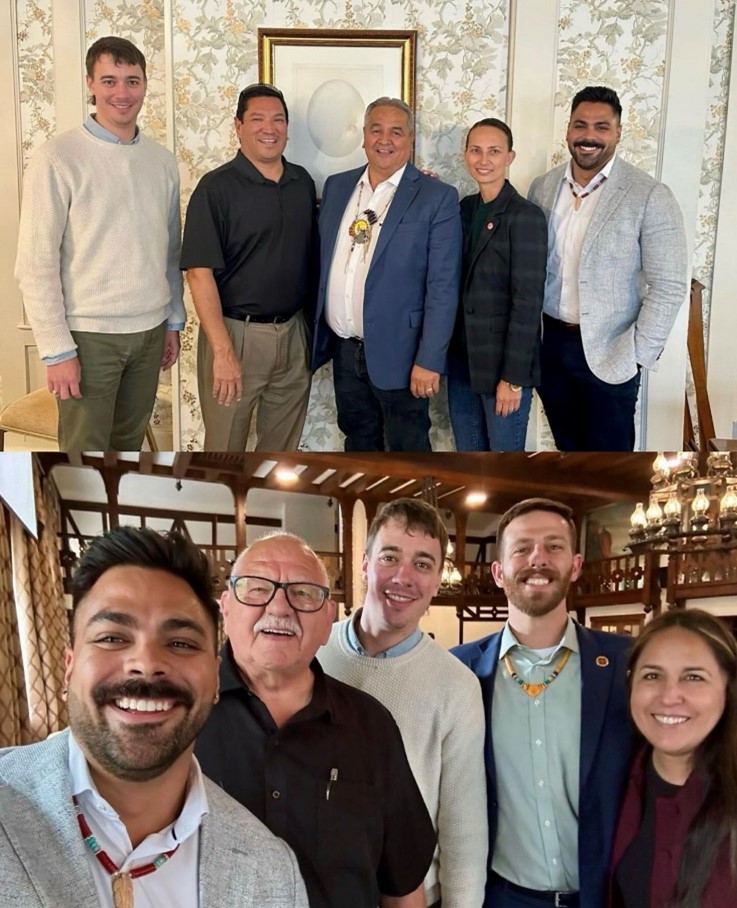 STAC and DSTAC Host Their Fourth Quarter Meetings in Rapid City, South Dakota
STAC and DSTAC Host Their Fourth Quarter Meetings in Rapid City, South Dakota
Last month, Tribal leaders and federal partners met in Rapid City, SD, to attend the Direct Service Tribal Advisory Committee (DSTAC) and Health and Human Services Secretary’s Tribal Advisory Committee (HHS STAC) 4th quarter meetings. Tribal leaders on STAC and DSTAC from all 12 IHS areas met with Health and Human Services (HHS) Secretary Xavier Becerra, IHS Director Roselyn Tso, and the principal leadership of HHS operating divisions to discuss Tribal priorities for HHS.
CMCS Informational Bulletin on Four Walls: Grace Period Extended through February 2025
On September 8, Deputy Administrator and Director of the Center for Medicaid and CHIP Services (CMCS), Dan Tsai, published a CMCS informational bulletin (CIB) announcing the further extension of the “four walls” grace period to February 2025. CMS’s current interpretation of the clinic benefit regulations provided in 42 C.F.R. § 440.90 prohibits Medicaid reimbursement for “clinic services” provided outside of the four walls of a facility. Without this grace period, the current interpretation prevents access to care, including home visits, telehealth, and other necessary outpatient services. The bulletin clarifies that this grace period extension applies to Tribal, IHS-operated, and state facilities.
“The Indian Health Service is Here to Stay” – IHS Tribal Self-Governance Advisory Committee Convenes Fall Meeting
On August 30th and August 31st, the Indian Health Service (IHS) Tribal Self-Governance Advisory Committee (TSGAC) held an in-person meeting in Washington, DC. The TSGAC provides an opportunity for Tribal leaders and federal officials to engage on IHS programs, services, and issues with particular focus on strengthening Tribal self-governance. This most recent meeting featured updates and discussions about Fiscal Year 2024 appropriations, IHS’s unobligated funds, and IHS’s standing on the Government Accountability Office’s High Risk List.
Congressional Items Left to Do This Week
As of last week, the House and Senate are both back on Capitol Hill. Speaker Kevin McCarthy planned for House lawmakers to pass the defense funding bill, but the votes were not there. Now, the plan is to pass a continuing resolution instead. On September 12th, the Speaker announced an impeachment inquiry into President Joe Biden. The inquiry will be conducted by the House Judiciary Committee, Ways and Means Committee, and Oversight Committee. The Senate was making progress on the minibus, but the unanimous consent request to package the three bills together was blocked, meaning the bills may be considered individually rather than together. Both chambers left last week without accomplishing much, let’s hope this week is different.
New PRC Area Designations in Washington State and the Mid-Atlantic Region
In August, the Indian Health Service (IHS) released three notices proposing to expand the Purchased/Referred Care Delivery Areas (PRCDAs) for seven Mid-Atlantic Tribes, the Confederated Tribes of Grand Ronde, and the Spokane Tribe of Indians. Each of these Delivery Area expansions increases the number of Tribal members who are eligible for PRC payment of services but does not increase the funding for these PRC programs.
 NIHB’s Analysis of 2024 Federal Spending Negotiations
NIHB’s Analysis of 2024 Federal Spending Negotiations
The House and Senate have each released their annual appropriations bills for the Indian Health Service (IHS) and other HHS accounts. The outlook on spending for FY 2024 is a tightening belt, with very low chances of breakout changes, including the addition of more funding for IHS. This fall, the National Indian Health Board (NIHB) will be advocating to oppose IHS rescissions, expand advance appropriations to all IHS accounts, and reclassify CSC and 105(l) mandatory payments as mandatory spending. Outreach to Congressional members back in their district during August recess and maintaining pressure into the fall will be critical to maximizing Tribal program investment.
Reauthorization of the Special Diabetes Program for Indians
The Special Diabetes Program for Indians (SDPI) serves 780,000 American Indians and Alaska Natives across 302 programs in 35 states.1 SDPI focuses on community-directed approaches to treat and prevent Type 2 diabetes in Tribal communities that are culturally informed. American Indians and Alaska Natives suffer disproportionately from Type 2 diabetes, but thanks to the success of SDPI, that statistic is improving.
SDPI expires on September 30, 2023 and Congress is currently considering the reauthorization. The Congressional Diabetes Caucus led the effort in circulating a bipartisan sign-on letter requesting support to reauthorize SDP and SDPI. With the help of NIHB and other partners, the letters received 60 Senate signers and 240 House signers. However, these letters do not reauthorize the program.
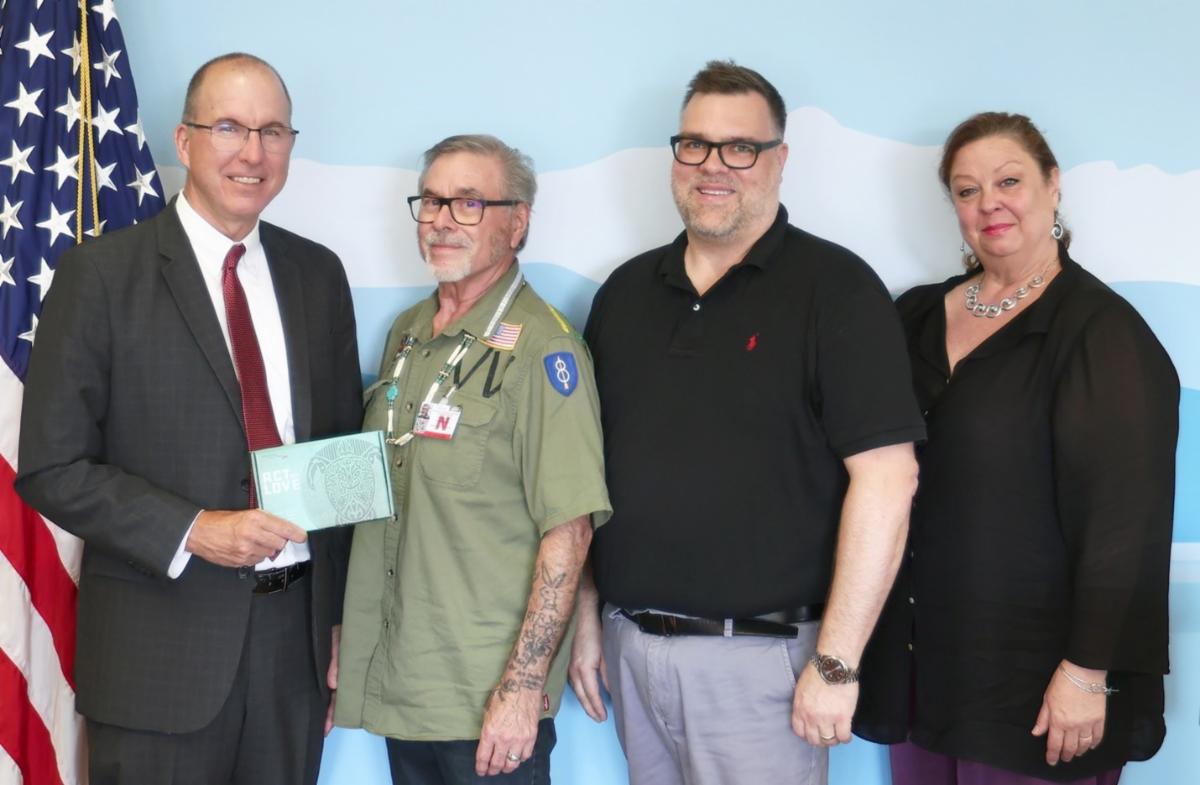 NIHB Calls on United Nations and Member States to Implement Indigenous Determinants of Health as Part of the 16th Session of the Expert Mechanism on the Rights of Indigenous Peoples
NIHB Calls on United Nations and Member States to Implement Indigenous Determinants of Health as Part of the 16th Session of the Expert Mechanism on the Rights of Indigenous Peoples
NIHB Chairman William Smith testified on July 18 about the importance of culture in healing for Indigenous People at the 16th Session of the Expert Mechanism on the Rights of Indigenous Peoples.
“NIHB’s sole commitment and focus is to the health care and public health for all American Indian and Alaska Native Peoples. That includes the work of healing our Peoples and our Nations,” said Chairman Smith, a citizen of the EYAK Tribe in the Alaska Village of Valdez. “That work cannot succeed without restoration of language and culture, and healing from colonization. Our very concepts of what it is to be healthy are rooted in our cultures, languages and in in our shared and individual histories. Without standing in the full knowledge and understanding of the impact colonization has defined in all indigenous experience, we will not know health. We will not heal.”
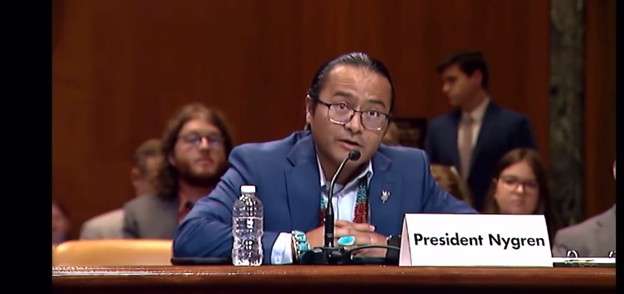 Congress Adjourns for August Recess – FY 2024 Funding, SDPI reauthorization, and Other Items still on the “to-do” list
Congress Adjourns for August Recess – FY 2024 Funding, SDPI reauthorization, and Other Items still on the “to-do” list
Last week, Congress adjourned for their 5-week August recess, without resolving many of the key legislative deadlines set to expire on September 30, 2023 – including but not limited to the FY 2024 Discretionary appropriations and the renewal of the Special Diabetes Program for Indians (SDPI).
 Councilman Spoonhunter Testimony
Councilman Spoonhunter Testimony
Councilman Lee Spoonhunter, NIHB Board Member representing the Billings Area, testified to the House Committee on Natural Resources Subcommittee on Indian and Insular Affairs Thursday, July 27, 2023. The legislative hearing discussed the draft legislation: Restoring Accountability in the Indian Health Service (IHS) Act of 2023.
Data on Medicaid Disenrollment – July 25, 2023 Update
The Kaiser Family Foundation has created a tracker for the most recent data on the unwinding of Medicaid. The data is not specific to American Indians/Alaska Natives.
 Face-to-Face Meetings for the Medicare, Medicaid, and Health Reform Policy Committee (MMPC) and the Tribal Technical Advisory Group (TTAG)
Face-to-Face Meetings for the Medicare, Medicaid, and Health Reform Policy Committee (MMPC) and the Tribal Technical Advisory Group (TTAG)
From July 25 to July 27, the MMPC and TTAG held their first Face-to-Face meetings in over three years. These meetings brought together Tribal health policy advocates, Tribal leaders, and leadership from the Centers for Medicare and Medicaid Services (CMS) to discuss recent developments and current priorities for the Medicare, Medicaid, and Children’s Health Insurance Program (CHIP) programs. The MMPC is a committee within NIHB that serves as a forum for Tribes, Tribal organizations, and those that work in Tribal health policy to share information on emerging issues and to identify agenda and action items for the TTAG meeting which follows the next day. The TTAG meeting began on July 26 at the National Museum of the American Indian and was attended by committee members from IHS service areas, as well as representatives from NIHB, the National Council on Urban Indian Health, National Congress of American Indians, and Tribal Self Governance Advisory Committee. Both meeting agendas featured a variety of presentations and discussion points, and three issues resounded throughout.
Legislative Inquiries:
Caitrin McCarron Shuy, MSc
Government Relations Director
50 F St NW, Suite 600
Washington, DC 20001
Email: [email protected]
National Indian Health Board
50 F St NW, Suite 600 | Washington, DC 20001 | Phone: 202-507-4070 | Email: [email protected]